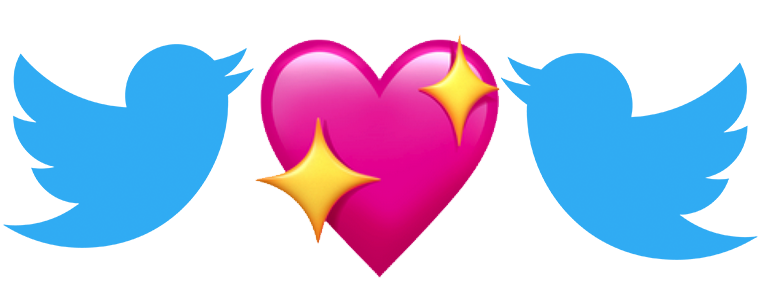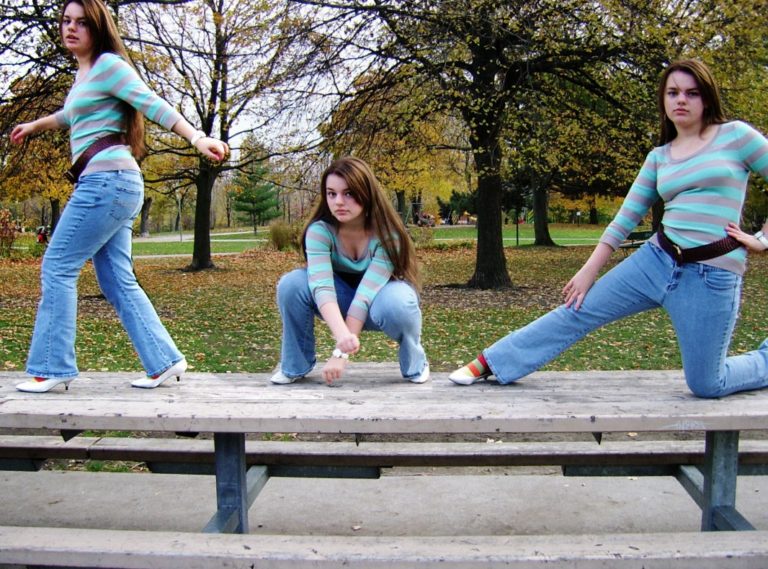
My unrequited love has changed his Twitter avatar, and just like that, I feel less in love with him. Poof. Pow. Wow.
The old picture was heavy with associations for me, months of misery tempered by sparse endorphin rushes when he would slide into my DMs. It was never the love confession for which I kept hoping and grasping; you’d think I’d learn by now not to expect anything from him but dawdling, awkward friendship. But no; I still want more. More than I’m ever going to get.
The new picture is an instant shake-up in my psyche. It takes a few moments, each time he messages me, for my brain to register that it’s him. Those moments aren’t much but they’re enough to distance me from my knee-jerk love reaction, a pause that is a prism, refracting my crush into questions to be pondered: How much do you actually like him and how much of it is just habit?
Maybe love is always a habit. Always just an addiction you have to kick. Maybe there are tricks that make it easier, like nicotine patches and impotent cloves. Maybe a Twitter avatar is no small thing after all but actually the big thing that kicks off a seismic shift, blessed and unexpected.

The bartender is fumbling with coins, pitchers, and a misfiring computer system. Unhappy customers crowd around the bar, waiting for their drinks, waiting to even be acknowledged. Welcome to Friday night at the Cavern.
“I wonder if we’ll ever get our drinks,” a British accent bemoans beside me. This stranger turns his good-natured smile on me like highbeams, and now I have a face to connect with the warm tweed that’s been rustling against my arm for the past five minutes. He looks like Prince Harry and Fred Weasley’s charming lovechild. Oh, hello.
We strike up an easy, tipsy rapport, and he pulls out his phone to show me a song on Spotify that he can’t get out of his head. My eyes sweep over his playlists, taking in the names. There is something so intimate about peering into someone’s music organization system, digital or physical. You’re seeing the soundtrack of their brain in the way they’ve chosen to arrange it, the way that makes most sense to them. It’s like resting a palm against the slickness of their coiled brain, feeling it pulse with private electricity.
Later, he comes to find me again, weaving through bar crowds to tap me on the shoulder. “I’m getting on a flight back to Britain in the morning and figured I’d seize the day and ask: want to go smoke a joint?” he proposes, and I do. “Great! I’ll be right back. I’m just going to change my outfit.” I nod, and he goes, but he’s gone about an hour before I decide he must’ve fallen asleep in his hostel room, and decide to leave.
I find him the next day by searching some of those Spotify playlist titles. I didn’t even have his name, but I had those. As I scroll through his tightly curated music selections, I feel the echoes of awkward hostel sex that could have been. Swing and a miss. Maybe I’ll meet another Weasley another day.

My habit of fantasizing too far forward about online dating suitors is exacerbated when they’re polyamorous. The way some folks compose their OkCupid profiles, I can creep not only my potential partner, but also my potential metamour.
On late nights with nothing better to do, I comb through these women’s compatibility questions, seeking the places where we touch and the places where we differ. I try to parse what it means that a man is into both me and her, what it says about him, what it says about me. I stack myself up against her obscure favorite bands, the outline of her lipstick, the cool candor with which she speaks of sex and food and Arrested Development.
The sore spots that ruffle my feathers are the spots tainted with internalized misogyny. When I’m burningly jealous she’s prettier than me and think, At least I’m smarter than her; when I hate her pink hair because it renders me a boring brunette; when I snort derisively at the pretentious Wes Anderson movie she’s chosen to quote, I know the patriarchy is whispering bitterly in the back of my brain. I rarely really hate another woman. I just hate the opportunities for which I’ve been told she’s my cruellest competition.
When I’m feeling happier and lighter, sometimes these metamour-creeping sessions turn into fantasies of their own. If I was dating her partner, we could go shopping together, get manicures. We could gossip over burgers and fries about his secret fantasies, his favorite blowjob tricks. We could be best friends who shared everything, and I do mean everything. It would be so cute, so sweet.
But I never quite follow through, both because online dating is exhausting and because I am too awkward and insecure to pursue friendships with metamours without reservations. I hope one day I work through this, because I still dream of that girl beside me at the nail salon, sharing the weight of my heart.

The new boy I’m flirting with asks-without-asking: “I had a crush on you, but I didn’t think I was being that obvious about it. Apparently I was wrong.”
He was wrong. But he probably doesn’t know the exact moment I realized he like-liked me. It was when he left a comment on an Instagram photo of me in lingerie: “I unhearted this, just so I could heart it again.”
He must have written this so that I would know. And I did know. Because people don’t write Instagram comments like that unless they like you. They just don’t.

When my last serious boyfriend first introduced himself to me via Twitter DM, he provided a list of links to his other social media. An Instagram profile, an alternate Twitter handle, a full name so I could Google him. “I don’t use Facebook, though,” he wrote, “because Facebook is the devil.”
He meant this in an anti-capitalist, anti-surveillance-state, anti-terrifying-algorithms sort of way, but Facebook is the devil in a different way, too. Facebook lets people linger in your life who haven’t earned the right, simply because unfriending them feels too aggressive, too unwarranted. What he did was bad, but it wasn’t UNFRIENDING-bad, you know?
What he did actually was unfriending-bad, though, in that he ended our relationship suddenly and unceremoniously, after reassuring me for four months that he had no intention of doing this. But as he didn’t have Facebook, I never had the chance to unfriend him. I had to settle for deleting the messaging app I’d used to communicate with him and unfollowing him on Twitter. (What he did was unfollowing-bad, but it wasn’t blocking-bad, you know?)
What’s nice about his Facebooklessness is that there wasn’t much damage to undo when things went sour. No unfriending to attend to, no photos to untag myself from, no relationship status boxes to uncheck, no mutual friends to bicker over. He never got entrenched in my digital life, so when he left my physical life, he dissolved from the digital, too, like a ghost. Poof. Pow. Wow. And that was all.



